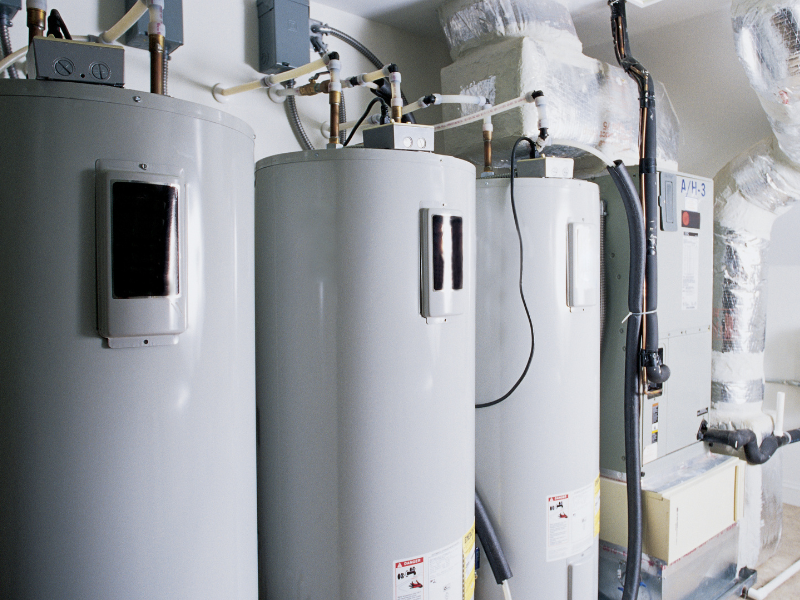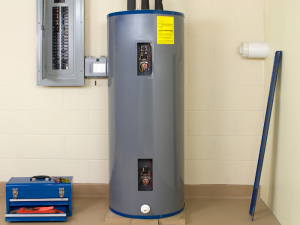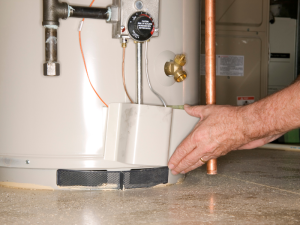Hot water is something of a need in many states and countries. Whether it’s used to ease the pain and tension out of you when taking a hot shower, or just a quick way to get a head start on boiling pasta for dinner, having access to hot water has become a need in many first world countries. When we’re young children, we don’t fully consider how we get access to the water and what’s put into the effort to provide it to our homes.
It’s only when we’re older that we learn more about the one specific machine in our home’s basement or garage and how it provides us with hot water when we need it. Eventually, people learn more about water heaters when they get a new home and need to learn how it works to properly understand what might happen if it breaks down.
Though there are two main types that seem to be the most well known, there are actually many different types of water heaters, each with their own fuel types, sizes and functions.
So when it comes to getting a replacement installed, choosing the best type of water heater for your home can be a difficult choice.
This article covers the different types of water heaters as well as what you should consider before buying one for your home of business.
Then, once you’ve made the best choice, call Clover Contracting to get it installed whenever you need it.
What are the different types of water heaters homeowners can buy?
Here’s some information on the different types of water heating units:
Tank Water Heaters
One of the most well known kinds of water heaters available on the market is the tank water heater. As one of the many different types of water heaters for homes and businesses, tank water heaters are far more often found in older homes, but are now becoming more efficient and up to date.
Exactly what the name suggests, tank water heaters have large, almost steel drum sized containers where water’s drawn in to be heated before getting distributed through the building as needed.
One key difference between the more traditional tank water heaters and the other kinds is that the water in the tank is constantly heated. Even if no one in your home or business uses the hot water, the water heater will constantly turn on to heat its contents the moment the water drops below a set temperature. Once it’s properly heated, the tank’s heating elements turn back off and the cycle continues until the water’s used and more water’s drawn in.
Tankless water heaters
Much like tank water heaters, tankless water heaters are exactly what they sound like. Where tank water heaters use a large container to store water, tankless heaters simply draw in water as it’s needed. This key feature is what gave tankless water heaters another one of the system’s names: on-demand water heaters.
Whenever someone in your home or business turns on the hot water, the water heater turns on its heating elements to supply hot water. When you’re done with the water, the heater turns off.
A tankless water heater’s lack of a larger water tank is also one of the reasons that people love the system. As long as it stays relatively close to a key water access point, you can install it anywhere and save space in your building. The only downside is that you may end up spending more to get the appropriate parts installed, especially if you don’t already have a tankless water heater installed.
Solar powered water heaters
Many water heaters use different kinds of fuel sources in order to heat the water that’s drawn in. The most common and well known ones are electric, gas or a hybrid, but there is also a fourth less known kind. Solar water heaters use, as the name suggests, energy drawn in and converted from the Sun.
While solar powered heaters are similar to tank water heaters, they instead provide a much more environmentally friendly alternative to the normal options. All you need is a few roof-mounted solar panels.
Point-of-use water heaters
A point-of use heater is best used in bathrooms and other rooms that need hot water access when they’re too far away from your main water heater. It can also be quite useful as a backup for your home’s gas or electric heater, and can even be a traditional tank or tankless. However, don’t be afraid to consider replacing your larger water heater with one or more point-of-use water heaters.
Depending on the number of bathrooms you have in your home as well as how close the faucets are to each other, you can easily connect one or two POU – point-of-use – heaters to up to two small fixtures, whether it’s your taps, your washing machine or even the shower. With more than one POU water heater, you can get hot water easily and for a price that’s easily within your budget.
Heat pumps
As an alternative to the common gas and electric fueled water heater, heat pumps draw in the heat from the surrounding air and the ground to heat up the water it draws in.
Instead of using electricity or gas to begin generating the heat, the pump takes the heat and only uses electricity to apply the heat to the water. This is what makes heat pumps a hybrid style water heater, using about only 60% of the normal electricity. The only downside to heat pumps is the amount of room it needs.
Condenser water heaters
One of the best options you can consider for your home is a condensing water heater. Ideal for homes with a regular flow of natural gas, this type of water heater uses the hot exhaust that the gas system releases and transfers the heat into the water. Though these kinds of heaters often use a tank to store water, condenser water heaters use less energy and fuel than many other types.
What you need to consider before making a choice about the different types of hot water heaters for homeowners
Before you choose between the different types of water heaters, do know the difference between the types.
Many of these water heaters can cross over each other, with some tankless water heaters also using solar power in order to power the system and provide hot water. So carefully consider the type of fuel – gas, electric, hybrid or solar – and how much space you’re willing to use to store the main parts.
Once you’ve made your choice, you can call Clover Contracting to get your new water heater installed!




